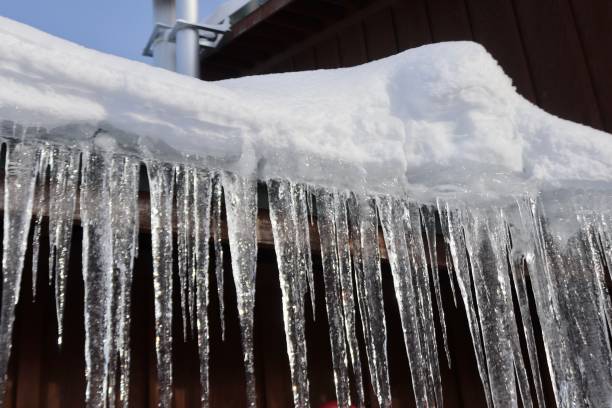How to Protect Your Plumbing from Freezing: Critical Strategies
How to Protect Your Plumbing from Freezing: Critical Strategies
Blog Article
The publisher is making a few great annotation on the subject of Preventing and dealing with frozen pipes overall in this great article on the next paragraphs.

Winter can ruin your pipes, specifically by freezing pipes. Here's exactly how to prevent it from happening and what to do if it does.
Introduction
As temperature levels decline, the danger of frozen pipelines increases, possibly resulting in pricey repair work and water damages. Comprehending just how to prevent frozen pipes is crucial for house owners in cold climates.
Comprehending Icy Pipes
What triggers pipelines to ice up?
Pipelines ice up when subjected to temperature levels below 32 ° F (0 ° C) for expanded periods. As water inside the pipelines freezes, it increases, taxing the pipeline wall surfaces and possibly creating them to break.
Threats and problems
Frozen pipelines can lead to water system disturbances, residential or commercial property damage, and expensive repairs. Ruptured pipes can flooding homes and create substantial structural damages.
Indications of Frozen Pipes
Recognizing frozen pipelines early can prevent them from breaking.
Exactly how to identify frozen pipelines
Try to find lowered water flow from taps, uncommon odors or noises from pipes, and noticeable frost on revealed pipes.
Avoidance Tips
Shielding vulnerable pipes
Wrap pipes in insulation sleeves or utilize warm tape to shield them from freezing temperature levels. Concentrate on pipelines in unheated or external locations of the home.
Home heating techniques
Keep interior spaces sufficiently warmed, particularly locations with plumbing. Open cupboard doors to enable warm air to circulate around pipes under sinks.
Safeguarding Outdoor Pipes
Yard tubes and exterior faucets
Disconnect and drain pipes garden tubes before winter season. Mount frost-proof spigots or cover exterior faucets with shielded caps.
What to Do If Your Pipelines Freeze
Immediate actions to take
If you presume icy pipes, maintain taps available to relieve stress as the ice melts. Utilize a hairdryer or towels taken in hot water to thaw pipelines gradually.
Long-Term Solutions
Structural adjustments
Take into consideration rerouting pipelines away from exterior walls or unheated locations. Include added insulation to attics, basements, and crawl spaces.
Upgrading insulation
Purchase high-quality insulation for pipes, attics, and walls. Proper insulation helps maintain consistent temperatures and decreases the risk of frozen pipelines.
Conclusion
Avoiding frozen pipelines calls for aggressive procedures and fast reactions. By understanding the reasons, indicators, and safety nets, homeowners can protect their pipes throughout cold weather.
Helpful Tips to Prevent Frozen Pipes this Winter
UNDERSTANDING THE BASICS: WHY PIPES FREEZE AND WHY IT’S A PROBLEM
Water freezing inside pipes is common during the winter months, but understanding why pipes freeze, and the potential problems it can cause is crucial in preventing such incidents. This section will delve into the basics of why pipes freeze and the associated problems that may arise.
THE SCIENCE BEHIND FROZEN PIPES
When water reaches freezing temperatures, it undergoes a physical transformation and solidifies into ice. This expansion of water as it freezes is the primary reason pipes can burst. As the water inside the pipe freezes, it expands, creating immense pressure on the walls. If the pressure becomes too great, the pipe can crack or rupture, leading to leaks and water damage.
FACTORS THAT CONTRIBUTE TO PIPE FREEZING
Low Temperatures: Extremely cold weather, especially below freezing, increases the risk of pipes freezing. Uninsulated or Poorly Insulated Pipes: Pipes located in unheated areas, such as basements, crawl spaces, or attics, are more prone to freezing. Insufficient insulation or lack of insulation altogether exacerbates the problem. Exterior Wall Exposure: Pipes running along exterior walls are susceptible to freezing as they encounter colder temperatures outside. Lack of Heating or Temperature Regulation: Inadequate heating or inconsistent temperature control in your home can contribute to frozen pipes. PROBLEMS CAUSED BY FROZEN PIPES
- Pipe Bursting: As mentioned earlier, the expansion of water as it freezes can cause pipes to burst, resulting in significant water damage.
- Water Damage: When pipes burst, it can lead to flooding and water damage to your property, including walls, ceilings, flooring, and personal belongings.
- Structural Damage: Prolonged exposure to water from burst pipes can compromise the structural integrity of your home, leading to costly repairs.
- Mold and Mildew Growth: Excess moisture from water damage can create a favorable environment for mold and mildew growth, posing health risks to occupants.
- Disrupted Water Supply: Frozen pipes can also result in a complete or partial loss of water supply until the issue is resolved.
WHY CERTAIN PIPES ARE MORE PRONE TO FREEZING
- Location: Pipes located in unheated or poorly insulated areas, such as basements, crawl spaces, attics, or exterior walls, are at higher risk of freezing.
- Exterior Pipes: Outdoor pipes, such as those used for irrigation or exposed plumbing, are particularly vulnerable to freezing as they are directly exposed to the elements.
- Supply Lines: Pipes that carry water from the main water supply into your home, including the main water line, are critical to protect as freezing in these lines can affect your entire plumbing system.
- Underground Pipes: Pipes buried underground, such as those connected to sprinkler systems or outdoor faucets, can be susceptible to freezing if not properly insulated.
https://busybusy.com/blog/helpful-tips-to-prevent-frozen-pipes-this-winter/

As an avid person who reads about How to Prevent Your Pipes From Freezing, I was thinking sharing that piece of content was a great idea. Enjoyed reading our entry? Please share it. Let other people check it out. We enjoy your readership.
Click Here Report this page